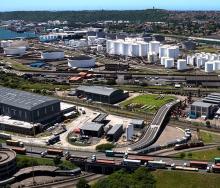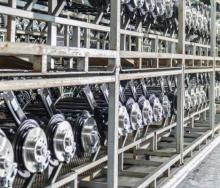South Africa’s economic growth is likely to be higher than anticipated for 2022, but the impact of Stage 6 load-shedding will put further pressure on production during the fourth quarter (Q4).
According to the Bureau for Economic Research Weekly Review released on Monday, the biggest positive surprise in economic data released last week was the better-than-expected real GDP growth in the third quarter (Q3).
“The implication is that even if GDP contracts somewhat in Q4, full-year growth is likely to be between 2 and 2.5% from an earlier expectation of just below 2%. A further positive was that the current account deficit for Q3 was somewhat smaller than anticipated. Another encouraging local release was the improvement in the Q4 FNB/BER Consumer Confidence Index (CCI),” the BER report said.
However, poor manufacturing output data for October showed that the factory sector experienced a tough start to Q4.
“Furthermore, the dreaded return of stage 6 load-shedding, as well as the expectation that significant power cuts will continue for at least the next six months, puts further pressure on the economy in Q4 and into 2023,” the BER report warned.
Load-shedding was ramped up to stage 6 on Thursday following several breakdowns and the need to preserve emergency generation units. To alleviate near-term pressure on the grid, Eskom delayed its planned refuelling and maintenance outage of Unit 1 of Koeberg by a few days. The unit can produce up to 900MW (almost one stage of load-shedding), but was generating less in preparation for its shutdown.
“At a point last week, Eskom was technically ‘shedding’ at stage 7, spread between rolling blackouts and load curtailment on heavy industrial users. Besides the diesel woes, the return of stage 6 has again put the spotlight on the future of Eskom CEO André de Ruyter,” the report said.
Stage 5 load-shedding is expected to continue this week.
“Eskom once again emphasised that the load-shedding situation will be very challenging over the next six to 12 months and continues to plead with the government for funds to buy diesel. While we have some sympathy for National Treasury’s argument that it does not have these funds as they were not applied for during the budgetary process, it is not difficult to argue that the situation has changed materially since then. Not supplying the funding comes at an enormous - much more than the roughly R19bn Eskom is asking for - cost to the economy,” the report added.
However, the BER said that load-shedding would not be solved with more money for diesel, but higher, more damaging stages could possibly be avoided.
“We will likely only see the real impact of intense load-shedding in the coming months as the ‘reopening’ boost to the economy and other normalisation (from Q2 shocks) effects fade. With this in mind, our October forecast of only around 1% real GDP growth in 2023 is firming up,” the economists said.
Meanwhile, the BER Retail Trade Survey, which was completed on November 14, shows that
after months of resilience, retail confidence dropped from 51% in Q3 to 42% in Q4.
“Elevated consumer price inflation and large interest rate hikes limit consumers’ disposable income. With the services sector still recovering from the Covid-19 pandemic, consumers may also be directing a larger share of their spending away from retail towards restaurants, hotels and transport,” the survey found.
“From the supply side, retailers must navigate intense load-shedding, high fuel costs and input pricing pressures. Retailers expect lower sales volumes this quarter compared to the same period last year. This is true across all retail categories and reflects bleak expectations about fourth-quarter sales, despite the festive season and Black Friday.”
The drop in sales of semi-durable goods was “particularly striking”.
“Compared to the strong growth in sales of clothing and footwear we have seen over the past year, the latest results suggest a slowing pace of recovery. The drop in fourth-quarter retail confidence contradicts the FNB/BER Consumer Confidence Index, which showed improved consumer sentiment,” the survey found.













